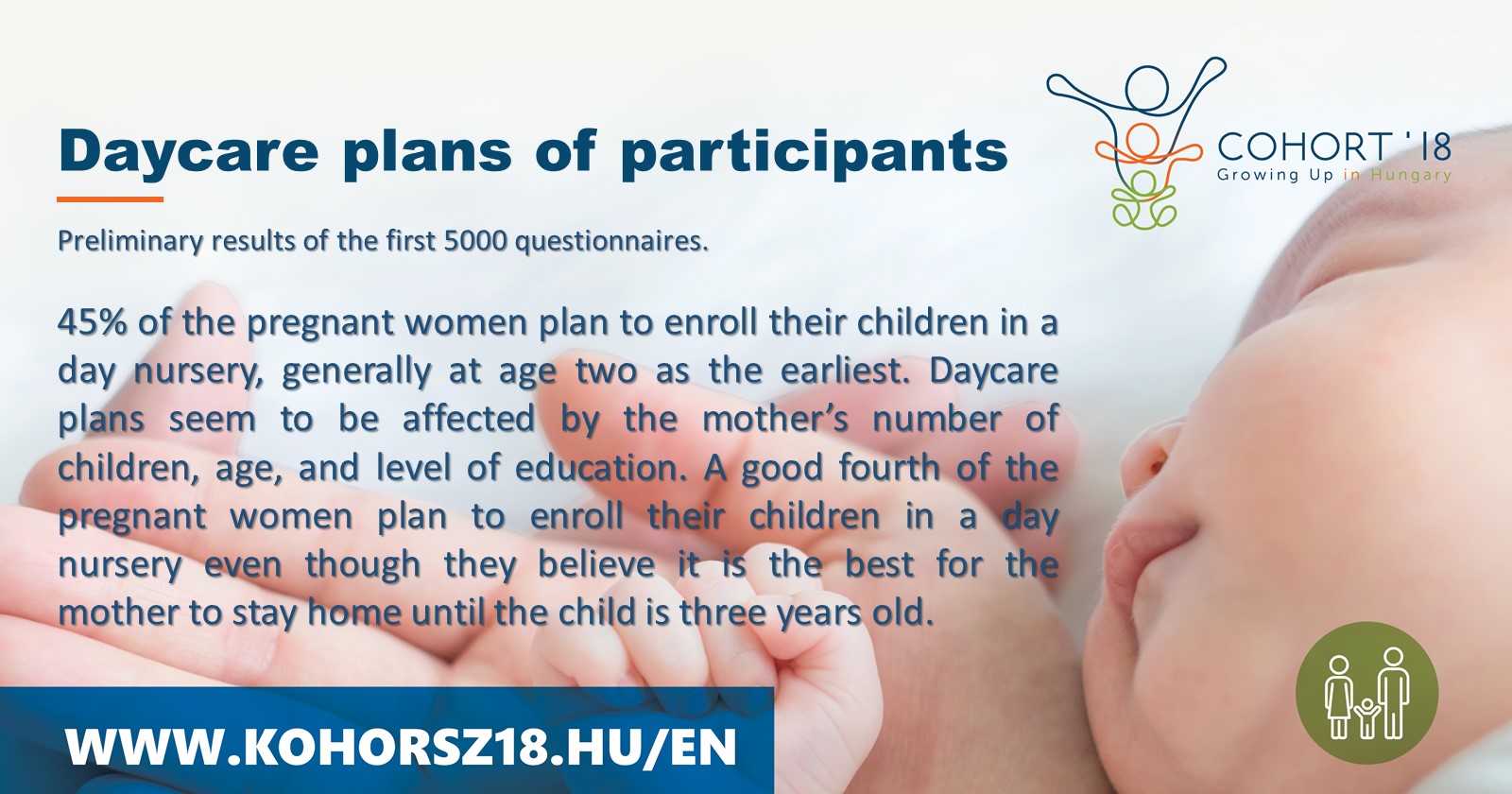In the Cohort’18 study, we asked the pregnant women about their plans after the delivery as well. We asked them whether or not they plan to enroll their child into a day nursery, and if they do, at what age. The preliminary data of the first 5000 questionnaires already received indicate a great variety among the pregnant women in this regard: 45% plan to enroll their child into a day nursery, 51% plan not to, and 4% are uncertain.
About 8% of those planning on using daycare do not know at what age they would like to enroll the child into an institution. 9% is the rate of those who plan to register their child into a daycare faculty at a later, almost kindergarten age, 2.5 years or later. Two third (64%) of those planning on using daycare services plan to register their child at a day nursery around age two (19-29 months, most typically at age 2). An additional 12% of those planning to use daycare plan to register the child at 13-18 months, and 6% at one year of age. Only 1% of the respondents plan to enroll their child earlier than at one year of age.
Not surprisingly, daycare plans strongly coincide with the family background circumstances of the mother: those awaiting their first or second child plan to enroll the child to be born in a day nursery in greater proportions than the average. On the other side, only one fourth of the pregnant women with large families, with three or more children plan to enroll the child into a day nursery.
The proportions are also low among the young (under the age of 25) pregnant women, while the intent to use daycare services is more frequent among older pregnant women. Plans during pregnancy also reveal that mothers with a higher level of education plan to enroll their children in day nursery in above the average proportions.
Data also indicate that some of the parents plan to enroll their children into day nursery out of an internal motivation, not thinking that it would not be ideal for the child. Still, there are many who plan to use daycare services out of external – typically financial, employment – compulsions. This is indicated by the fact that a good quarter (26%) of those who believe that the best for the baby would be the mother staying home at least for three years before going back to work plan to enroll their child to be born into a day nursery.
Subsequent data collections of the study will enable us to follow up on the realization of plans on daycare, along with changes in possibilities, wants and life circumstances.

